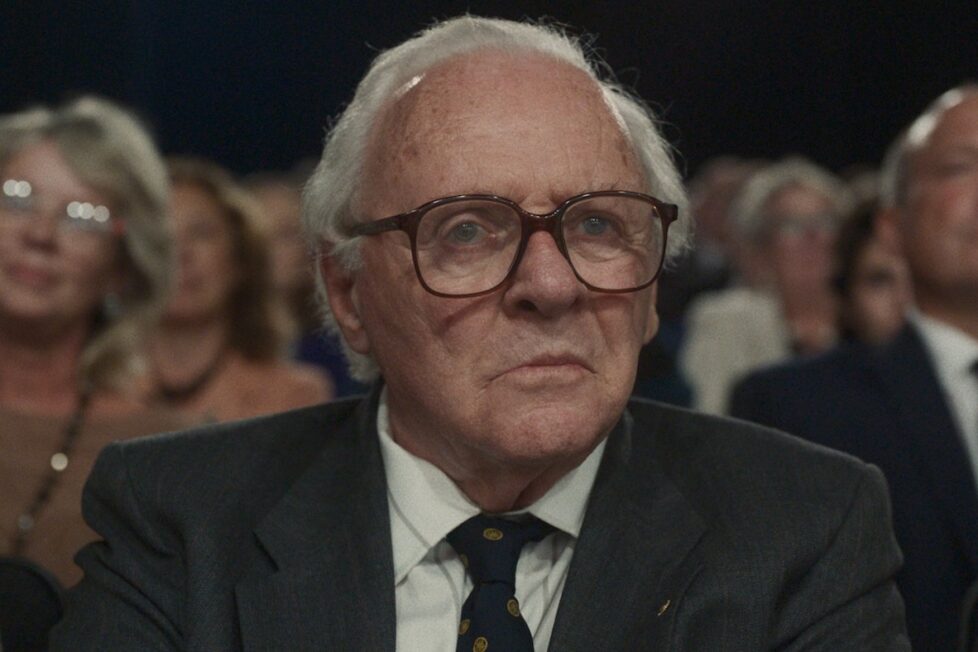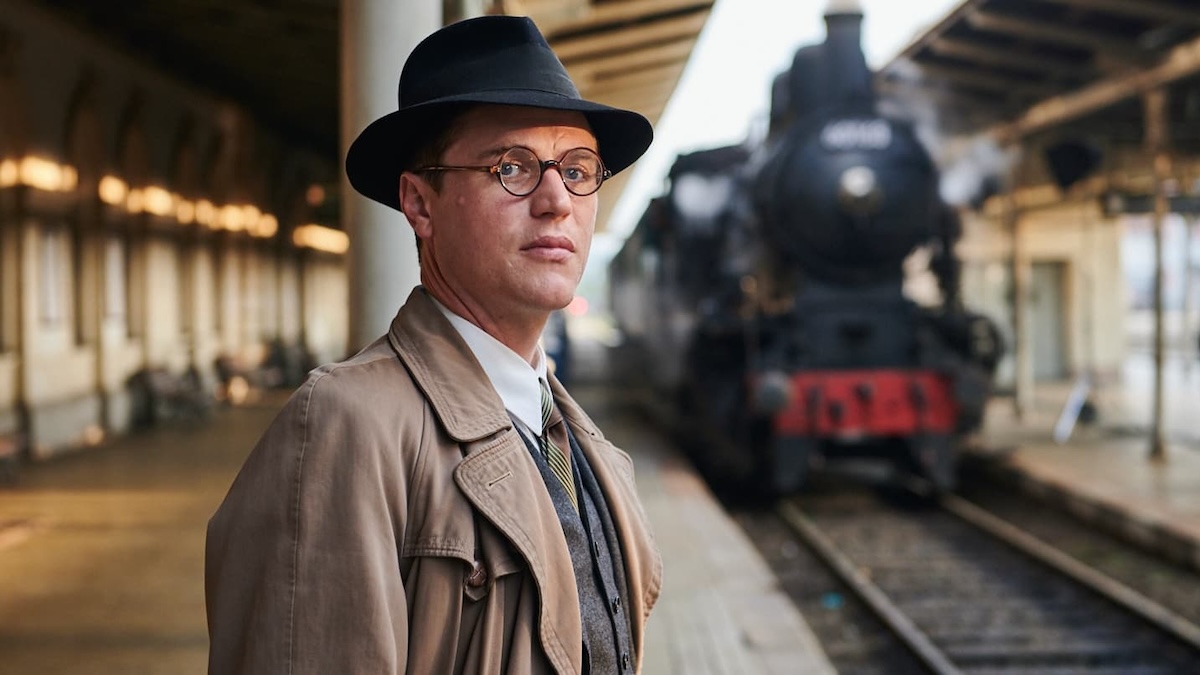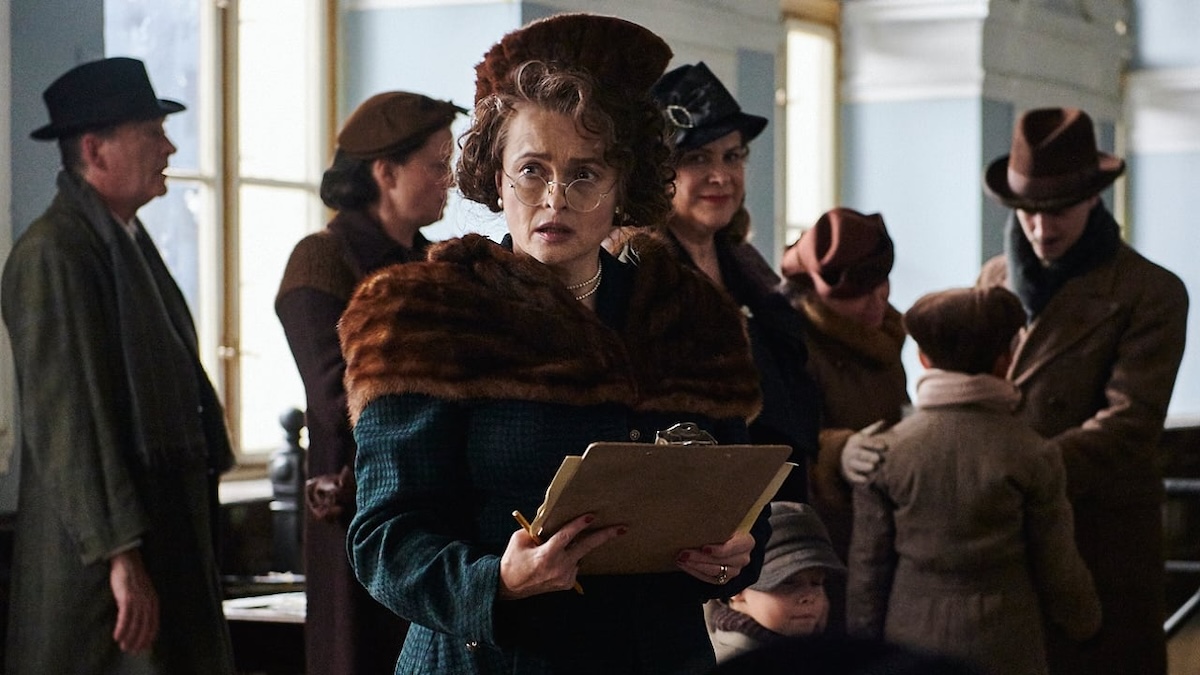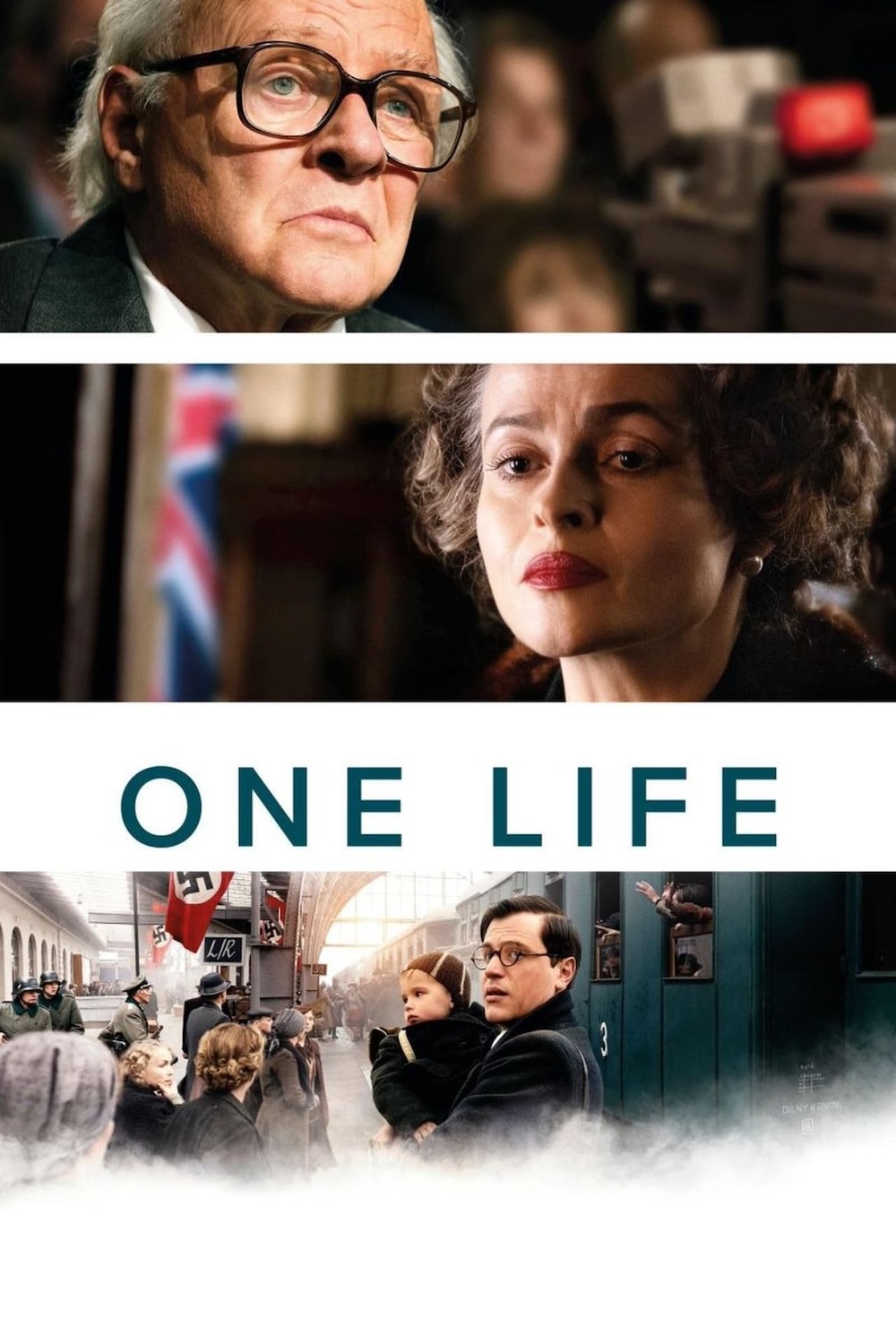ONE LIFE (2023)
The story of Sir Nicholas 'Nicky' Winton, a young London broker who, in the months leading up to World War II, rescued 669 predominantly Jewish children from the Nazis.

The story of Sir Nicholas 'Nicky' Winton, a young London broker who, in the months leading up to World War II, rescued 669 predominantly Jewish children from the Nazis.


While Nazi Germany orchestrated its sinister deeds with bureaucratic efficiency, resistance sometimes manifested in activities like form-filling, rather than grand gestures of defiance. Witness Steven Spielberg’s masterpiece, Schindler’s List (1993), which propelled Oskar Schindler into the global spotlight. Similarly, in his feature-length directorial debut, James Hawes (Black Mirror) hopes to reignite public interest in the remarkable story of Sir Nicholas Winton.
Indeed, One Life ends with a title almost identical to one at the close of Schindler’s List, reporting that “more than 6,000 people alive today” owe their lives directly or, in most cases, indirectly to the work of Winton and his colleagues.
Just before World War II, while still a young man (he wouldn’t be knighted until much later), Winton, working as part of a team, secured the escape of 669 mostly Jewish children from Czechoslovakia to Britain. They facilitated this by tirelessly arranging visas, finding foster homes, and securing essential but unglamorous resources like money. In One Life, the true antagonists aren’t individuals, but the grinding gears of bureaucracy, the constraints of circumstance, and the relentless pressure of time. This is the case in this movie even more than Schindler’s List, and it strives to be a testament to the collective effort it takes to overcome such odds.
At least, that’s the dynamic in the earlier of the film’s two alternating storylines, set in London and Prague during 1938-39. Here, we find a younger Nicholas (Johnny Flynn), around 30 years old at the time; a British stockbroker of German-Jewish descent with a strong conscience and socialist ideals. Prague is still free from German occupation but facing imminent takeover, so Nicholas travels there and joins a group of Brits aiding refugees fleeing the Nazi threat.
At that point, the British government-backed Kindertransport programme for evacuating children only covered Germany and Austria, so Winton and his fellow volunteers—prominent among them Doreen (Romola Garai)—raised funds, found British foster families, and cut through the red tape as quickly as possible in order to get people out before it was too late.

Unfortunately for One Life, the obstacles they encounter don’t seem very insurmountable. Back in London, for example, Nicholas’s mother Babette (Helena Bonham Carter) lectures an unhelpful civil servant on Britain’s “commitment to decency [and] kindness” and he quickly gives in.
Historical accuracy necessitates that the Nazis themselves are largely absent from the movie, but co-writers Lucinda Coxon and Nick Drake fail to offer compelling substitutes as threats, leaving the audience struggling to connect with the characters’ anxiety.
The narrative’s second strand, set in Maidenhead, England, in 1987-88, also suffers from a lack of tension. Here, we encounter the ageing Nicholas (Anthony Hopkins) and his patient wife, Grete (Lena Olin). The crux of their storyline revolves around Nicholas’s quest to find a permanent home (perhaps a foster home?) for a cherished scrapbook he assembled in the 1940s. While the movie’s trailers heavily feature a televised reunion between Nicholas and the individuals he rescued back then, the 1980s storyline as a whole is devoid of meaningful challenges, conflict, or significant character development.
One Life ultimately stumbles because it fails to deliver genuine drama. The 1980s storyline has some mildly surprising twists, but their impact remains trivial. Similarly, the 1940s narrative holds a few effective moments, but any tension they might generate is largely lost when the film starts to focus more on the later one.
Instead of relying on character development or nuanced storytelling, One Life often seems to depend on Volker Bertelmann/Hauschka’s overladen music to carry the emotional weight. Its predictable swells of poignancy, emphatic crescendos, and plaintive piano passages fall squarely into the mould of the generic bittersweet/stirring/nostalgic scores that are written for countless similar films. It feels like a desperate attempt to wring every last drop of emotion from every scene, rather than trusting the narrative.
In some scenes the emotional potency requires no musical embellishment; at other times the score’s drama is inappropriate in scale. When every hint of tragedy or heroism gets the same bombastic treatment, the currency of emotional impact inflates, and the music becomes ineffective at truly deserving moments. This overblown scoring might be less noticeable for infrequent moviegoers, but at its worst, it can inflict significant damage on a film, as it does One Life.

The performances, fortunately, are much better. Hopkins has done this kind of role often and there are few surprises, but he’s as watchable as ever, and despite the aura of virtuousness which the film weaves around his character he manages to play against it now and again.
His grumpy face in the TV studio is a delight, as are some of his exchanges with Olin as his wife—their marriage is somewhat reminiscent of Jim Broadbent and Penelope Wilton in The Unlikely Pilgrimage of Harold Fry (2023). Jonathan Pryce also plays a familiar type, the older version of one of Winton’s Prague colleagues, as well as always.
In the 1940s sequences, Garai makes an excellent, forceful Doreen and copes with a lot of scene-setting dialogue. Flynn is also convincing as the younger Winton, while Martin Bednár is powerful in a small role as a refugee father seeking safety for his children.
One Life maintains a brisk pace, punctuated by a few well-observed details. For instance, the scene where young Winton is swarmed by refugee children upon displaying chocolate shows a deft touch. Similarly, the older Winton’s use of a button instead of a coin at a ticket machine adds a relatable human element. However, the narrative flow occasionally stumbles: some dialogue, particularly the 1940s discussion about “an army of the ordinary,” feels forced and out of place, while scattered anachronisms risk drawing attention to themselves.
These characters would probably not have said “the UK” until the 1960s, and they certainly wouldn’t have referred to the “letters section” of The Times, for example; British telephone numbers didn’t start with 01 until 1995; and so on. Individually such things are unimportant but if there are enough, and enough people notice them, they start to undermine a film.
While the performances in One Life are mostly persuasive and the visual presentation never falters, the film’s biggest problem is its lack of intrigue. We can predict the resolution of each narrative thread far too early, possibly even before stepping into the cinema. As a result, neither manages to truly captivate the audience. It’s a textbook example of the truth that a great real-life story doesn’t automatically make a great film.
UK | 2023 | 110 MINUTES | COLOUR | ENGLISH


director: James Hawes.
writers: Lucinda Coxon & Nick Drake (based on ‘If It’s Not Impossible… The Life of Sir Nicholas Winton’ by Barbara Winton).
starring: Anthony Hopkins, Helena Bonham Carter, Jonathan Pryce, Romola Garai, Alex Sharp & Johnny Flynn.
